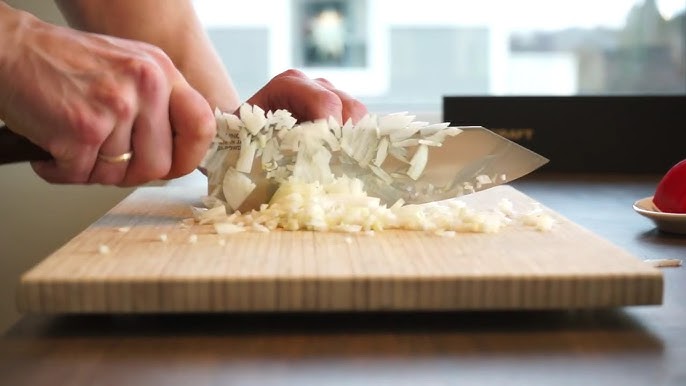In the world of culinary arts, knives are not merely tools but extensions of a chef's skill and creativity. Among the many types of knives available, German knives stand out due to their exceptional design and quality. But what exactly is the German knife design philosophy, and how has it influenced the cutlery world?

The Roots of German Knife Craftsmanship
German knives are renowned for their durability, balance, and precision. The design philosophy behind these knives is deeply rooted in tradition and meticulous craftsmanship. German cutlery, particularly from regions like Solingen, often referred to as the 'City of Blades', is synonymous with quality. This region has been producing exceptional knives for centuries, and its legacy continues to influence the industry today. For more on the historical significance of Solingen, you can explore this article.
Key Features of German Knives
One of the core tenets of the German knife design philosophy is the emphasis on balance and weight. German knives are typically heavier than their Japanese counterparts, providing a sturdy and robust feel. The blades are often made from high-carbon stainless steel, which offers an excellent balance between sharpness and durability. This makes them ideal for tasks that require power and precision, such as slicing through thick cuts of meat or chopping dense vegetables.
The blade design is another crucial aspect. German knives often feature a curved edge, which facilitates a rocking motion during cutting. This motion is particularly beneficial for tasks like chopping herbs or mincing garlic. For a deeper understanding of how to utilize a German chef's knife efficiently, you might find this guide helpful.
The Craftsmanship Behind the Blades
German knives are crafted with precision and care. The forging process involves heating the steel to high temperatures and then shaping it into the desired form. This method ensures that each knife is robust and can withstand the rigors of a professional kitchen. The handles, often made from materials like polyoxymethylene (POM), provide a secure and comfortable grip, enhancing the overall user experience.
Moreover, the full tang design, where the blade extends into the handle, is a hallmark of German knives. This design not only adds to the knife's strength but also improves its balance, making it easier to handle. For those considering investing in a set, you can find recommendations for the best German knife sets in this article.
Why Chefs Prefer German Knives
Professional chefs often prefer German knives for their versatility and reliability. These knives are known to retain their sharpness for extended periods, reducing the need for frequent honing. Furthermore, the robust design means they can handle a wide range of culinary tasks, from delicate slicing to heavy-duty chopping.
The ergonomic design of German knives also plays a significant role in their popularity. The handles are crafted to fit comfortably in hand, reducing fatigue during prolonged use. This attention to detail in design and functionality is why many chefs choose German knives as their go-to tools in the kitchen. To understand why chefs love these knives, you can read more here.

Maintaining Your German Knives
Proper maintenance is crucial to preserving the quality and longevity of your German knives. Regular honing and occasional sharpening are essential to keep the blades in top condition. Additionally, washing knives by hand and avoiding the dishwasher can prevent damage to the blade and handle. For detailed care instructions, consider checking out this guide.
FAQ
What makes German knives different from other knives?
German knives are known for their robust design, balance, and durability. They are typically heavier and have a curved edge, which is ideal for a rocking cutting motion.
Are German knives suitable for all types of cooking?
Yes, German knives are versatile and can handle a wide range of tasks, from slicing and dicing to mincing and chopping.
How do I care for my German knife?
To maintain your German knife, regularly hone and sharpen the blade, hand wash the knife, and avoid using the dishwasher. Proper care will ensure your knife remains in excellent condition for years.


























